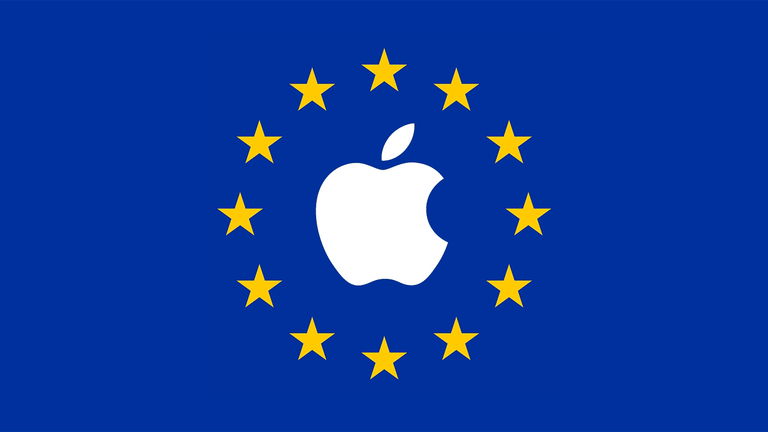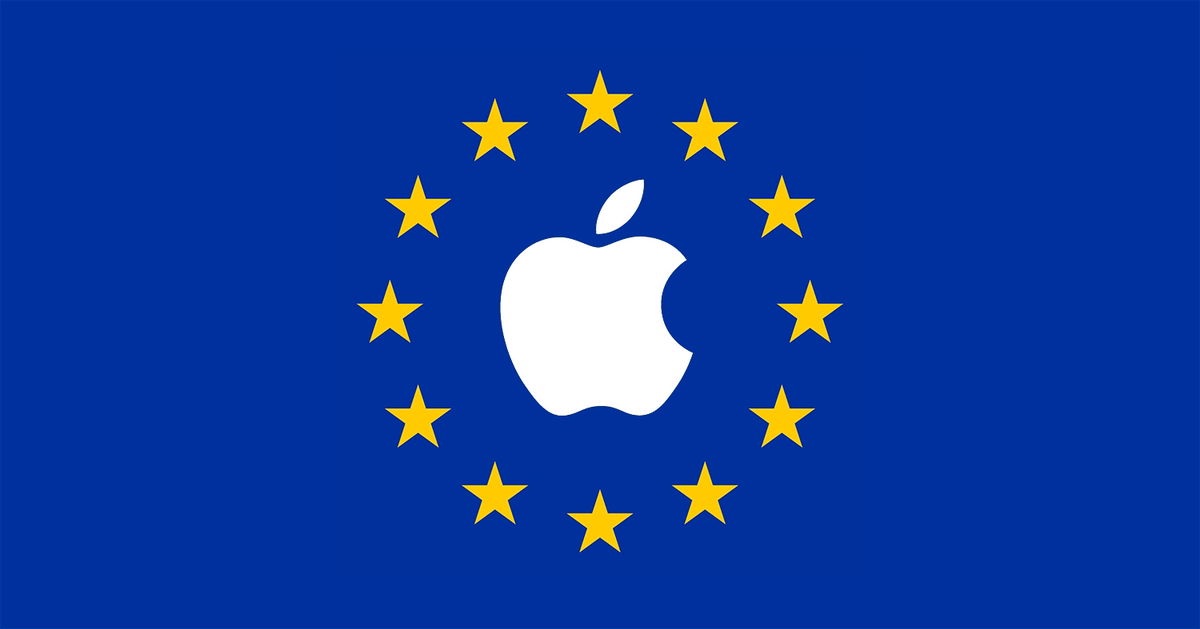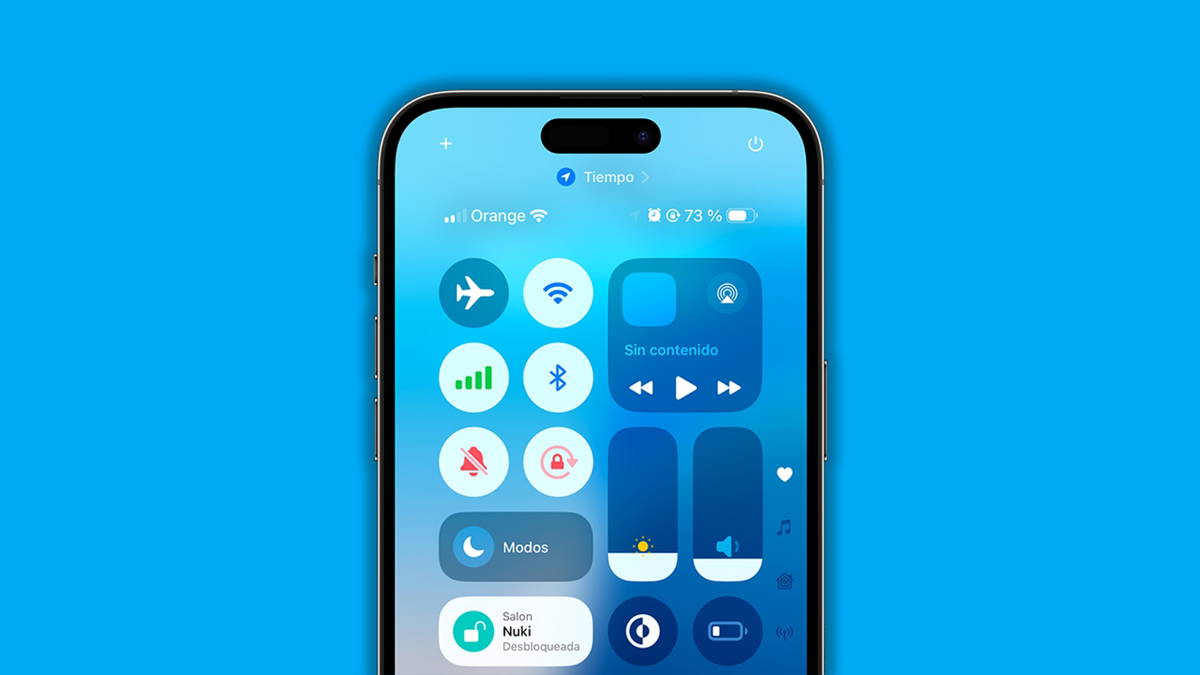The new Digital Markets Act is already in effect and will affect Apple in different ways.

The The European Union Digital Markets Act came into force on November 1, 2022 and will begin to apply six months later, from the May 2, 2023. This European law aims to “prevent certain companies from imposing unfair conditions on other companies and end users and to guarantee the open nature of important digital services”.
This law is independent of the regulations that will force Apple to use USB-C on the iPhone, is software-based rather than hardware-based regulation. A very ambitious law that will affect Apple and other large companies like Google, Microsoft or Meta.

EU digital markets law wants app store alternative and more
Will this law apply to Apple?
The Digital Markets Act establishes so-called “gatekeepers”, which is the name given to all companies that must apply the principles and articles established by this regulation. As noted, three conditions must be met to qualify as a “gatekeeper”:
- Have a size that affects the domestic market: this is considered to be the case if the undertaking has achieved an annual turnover in the Union equal to or greater than EUR 7.5 billion in each of the last three financial years, or if its average market capitalization or its equivalent fair market value amounted to at least 75,000 million dollars during the last financial year.
- Control an important gateway between business users and end consumers: this is considered the case if the company operates a basic platform service which has on average more than 45 million active end users established or located in the EU per month and more than 10,000 active business users established in the EU per year in the last financial year.
- Occupy an entrenched and enduring position: This is considered the case if the company meets the other two criteria in each of the last three years.

The European Union will change many rules that will affect Apple and other companies
Clearly, Apple is a company that respects the three principles, both in terms of revenue and in terms of active users and years in Europe. So, Apple will be referred to as a “gatekeeper”. From 2 May 2023, when the Digital Markets Act will start to apply, potential gatekeepers will have two months to notify their basic platform services to the Commission.
How will the Digital Markets Act affect Apple?
This law will affect most tech companies which operate in Europe and will generate profound changes in Google, Microsoft or Meta, especially in applications like Instagram or WhatsApp. In many cases, user data protection is sought, and while Apple doesn’t have to make many changes to it, there are other aspects that need to be drastically changed.
Alternative Apple Store
One of the main points of the new law seems to be designed specifically for Apple. As described, it should allow users to install third-party apps or app stores without having to go through the “gatekeeper” store.
Allow end users to install third-party apps or app stores that use or interact with the gatekeeper operating system.

We will have an alternative to the App Store on the iPhone
In addition, an option should be given to these alternative stores of be used by default instead of official stores, that is, instead of the App Store.
Gatekeeper will not prevent downloaded third-party software applications or software stores from prompting end users to choose whether or not to set the downloaded software application or software store as the default option.
Of course, in order for these alternatives to be safe for users, Apple can make certain rules about what apps can and can’t do. These third-party apps will not be able to bypass the current iOS permissions system.
To the extent strictly necessary and proportionate, the gatekeeper will not be precluded from taking steps to ensure that third-party software applications or software stores do not compromise the hardware or system integrity of operation provided by the gatekeeper.
Alternative payment systems
In addition to an alternative to the App Store, the Digital Markets Act also establishes that Apple can’t force developers to use their own payment services, so we will have to see alternatives to payments in App Store applications. This is something that has caused a lot of debate and forced apps like Fortnite to leave the App Store.
Prohibition of requiring app developers to use certain access control services (such as payment systems or identity providers) in order to appear in their app stores.

Alternative payment systems should reach the App Store
It is likely in this case that Apple is also forced to open the NFC payment system of the iPhone, which is currently limited to Apple Pay. Therefore, other payment systems such as Google Pay or the systems of the banks themselves could appear.
Alternative browsers (really)
In iOS we have several alternative browsers such as Chrome or Firefox, but all must use WebKit as a motor. Therefore, we could say that the rest of the browsers are “different versions of Safari” they won’t offer too many benefits. However, with the new law, each browser will be able to use its own engine.
Messaging Services Interoperability
It is something that can greatly affect messaging apps such as WhatsApp, but also iMessage can be affected. This should make it possible to send messages between different messaging platforms. At first, they only establish messages, but over time it will also affect sending photos, videos or creating groups.
The Digital Markets Law establishes that access controllers who provide messaging services have the obligation to guarantee the interoperability of basic functionalities.
The law will start to apply from May 2023 and then we’ll really see how many changes are needed. It will be then that these types of measures will start to be necessary and Apple and the rest of the companies will only have a few months to apply them.
Table of Contents







